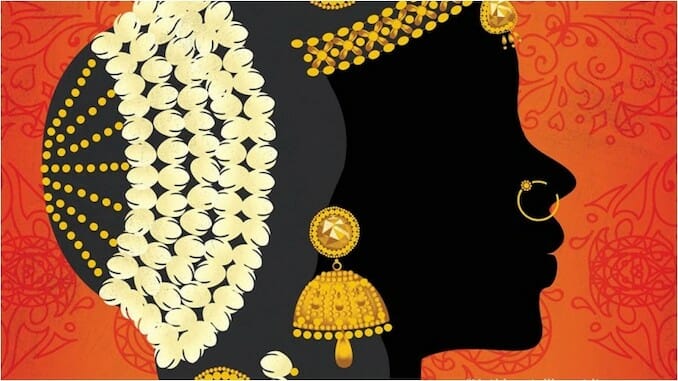Kaikeyi Brilliantly Reimagines a Despised Queen from Indian Mythology

One of the most welcome trends in publishing in the past few years has been the rise of mythological retellings that re-center ancient stories from legend and folklore around the frequently sidelined, ignored, or unfairly villainized women who exist in their margins. But although books like Madeline Miller’s Circe, Pat Barker’s The Silence of the Girls, and Jennifer Saint’s Ariadne are all fantastic stories that give many underserved female characters in classical fiction their voices back, they all generally tend to be focused on explicitly Western texts, like The Illiad, The Odessey, or the story of Theseus and the Minotaur.
Happily, Vaishnavi Patel’s debut, Kaikeyi, is here to help change that, with its fierce and feminist reframing of the story of one of the most despised queens of Indian mythology, best known for pitting herself against the gods in the epic poem the Ramayana. Essentially little more than a villainous stepmother in the original tale, the Kaikeyi in the poem jealously banishes Rama from the kingdom in the name of putting her own son on the throne.
But Patel’s novel embraces a more nuanced depiction of her character in a retelling that refashions Kaikeyi into a brave and compassionate leader who isn’t simply out for her own ends. Rather, she determinedly pushes back against the edicts of a patriarchal society that views women as little more than extensions of the men in their lives, in the hopes of carving out a better world for all.
The only girl among eight royal siblings, as a child Kaikeyi quickly learns that women have little choice in, and even less power over, the world around them. Her story begins with the exile of her mother, suddenly banished by her father with little explanation, no recourse, and no expectation of ever seeing her again. But as a reeling Kaikeyi is forced to fulfill some of her mother’s former duties, she begins to understand that no matter what her wishes might be, her future will be inevitably tied to who she marries (and whether she can give that man sons) whether she wants it to be or not.
Her frequent trips to the palace library eventually unearth scrolls that teach her how to enter the Binding Plane, a meditative astral realm where she can see and magically manipulate the invisible strings that connect her to others. There, she uses these strings to deepen, change, or control her relationships with those around her, from encouraging her twin brother Yudhajit to teach her to fight like a warrior, to nudging her palace teachers to let her study more serious subjects, and pushing her beloved maid to for lessons in how to be a proper queen. ‘
-

-

-

-

-

-

-

-

-

-

-

-

-

-

-

-

-

-

-

-

-

-

-

-

-

-

-

-

-

-

-

-

-

-

-

-

-

-

-

-








































